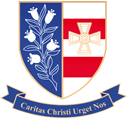Why study Photography A Level?
Photography is an art form, it’s a creative outlet, a way of seeing and interpreting the world around you. Photography is probably one of the only forms of communication that is truly universal, crossing social and cultural boundaries and interweaving itself seamlessly with so many aspects of our lives.
St. Joseph’s Art Department is a flourishing hub for the development of the visual arts which provides students with opportunities to learn to produce work at a professional standard, at the same time encouraging the exploration of photography as an artistic medium.
Our teachers are committed, inspirational, demanding and fun and students are given individual attention and appropriate levels of support and guidance to enable them to produce high quality outcomes.
Our programme of study is a blend of practical projects and relevant theory so that students can explore photography as a key.
| Key Documents | ||
| Progression Model |
A Level Photography Presentation
Course Content
Coursework Portfolio:
For this unit you are expected to produce a wide range of digital images working from the theme of structures and that every picture tells a story. In classroom based work you will be provided with opportunities to explore the basic principles of photography, learn how to use a digital camera and develop your skill of digital techniques/manipulation.
This approach emphasises the manipulation and presentation of imagery within a computer.
Personal Investigation:
You will need to gather resource material for a project based on two separate genres of photography. You must develop a creative response to your selected genres in a digital sketchbook. In this project you must produce a portfolio of work, based on your observations, further research and the development of your ideas.
In addition you are required to produce a related well illustrated personal study of approximately 1,000 – 3,000 words. This should be a detailed study based on a particular genre of photography you have become interested in during the course.
It is expected that you will approach this study in a more focused and analytical way. Controlled Assignment: The Controlled Test consists of a range of questions set by the examination board to be used to a successful conclusion.
Photography Knowledge Organiser
Higher Education/Career Prospects
This course can lead on to a wide range of higher education courses including: Graphic Design, Illustration, Photography, Film and Animation, History of Art, Design and Film. There are a range of career opportunities including, art and design, fashion, film industry, museum and gallery work, photography, printing, publishing, teaching, television and radio, and theatre.
Useful Links:
National Geographic Ultimate Photo Guide
Creative Black and White Digital Photography Tips and Techniques
Technology, Journalism and Ethics
ESSAYS ON INSPIRATION, CREATIVITY & VISION IN PHOTOGRAPHY
NINE MOTIVATIONAL ESSAYS ON PHOTOGRAPHY

